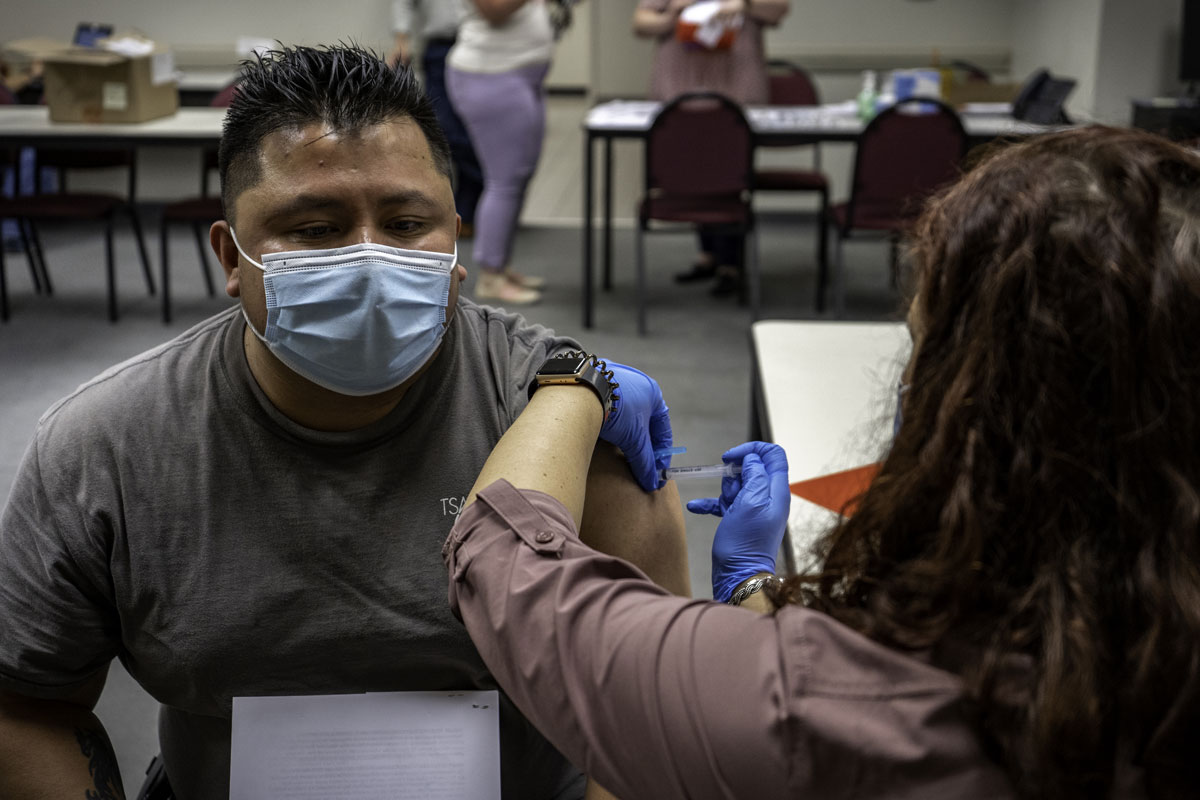Vaccine Hesitancy in the Workforce

June 21, 2021 by Keely Knopp
From the June Mercy Occupational Medicine eNewsletter
It may seem counterintuitive for Americans to have concerns about getting vaccinated for COVID-19, a disease that has killed millions worldwide. After all, more than 300 million doses have been distributed as of June 2021, with more than 139 million Americans now fully vaccinated. But vaccine hesitancy in Americans is a real concern for some employers and can affect the productivity, and even overall efficiency, of their workforce.
There is no single factor keeping American workers from getting vaccinated. However, two common reasons have surfaced: First, significant concerns about vaccination, safety and efficacy. And, second, barriers to obtaining vaccines—working long hours, a lack of transportation, or worries about side effects. So what can employers do? Below are some suggestions.
Establish trust, both in the vaccine and in you as their employer. Build trust by transparently and frequently communicating about the vaccine, including organizational policies about vaccination and vaccination rates within your facility.
Remove barriers to make it easy for your staff to find and access vaccines, and consider hosting vaccine drives so that employees can access them conveniently.
Make time to listen and create lots of opportunities for employees to get their questions answered by trusted, local experts. One-on-one conversations between managers and staff who have already gotten vaccinated, and those who are still deciding, are one of the most effective tools available in the vaccination effort.
Offer meaningful incentives like paid time off to get vaccinated and to allow employees to recover from short-term side effects.
Activate trusted messengers who may not be part of your organization’s management or leadership. These can be medical experts, co-workers who have received the vaccines, or even local celebrities who foster trust in the community.
Use effective messages like “more and more employees here are choosing to get the vaccine,” or cite critical milestones for those who want to wait and see, like the fact that more than 139 million Americans are fully vaccinated.
Celebrate as a community, but address fears at the individual level. Remember, reasons employees are hesitant to take the vaccine can be as different and varied as the employees themselves. Take time to answer employees’ concerns on a personal level.
Employers should work to develop strategies and messages for their employees that rely on understanding people’s identities, moral values, and worldviews. How we see the world influences our perception of truth and authenticity. Our identities affect whom we trust, and our moral values affect how we interact with authority. These are key factors in talking with employees and working to affect change in hesitancy rates.
Mercy Urgent Care can assist you in having these types of conversations with your employees and can host provider-led Q&A sessions regarding the efficacy and safety of the COVID-19 vaccine. Contact Jeff Howell, Business Development Manager, to discuss how Mercy can help with vaccination efforts at your business: jhowell@mercyurgentcare.org or 828-337-7675.
Source: Agency for Healthcare Research and Quality. Invest in Trust: A guide for Building COVID-19 Vaccine Trust

